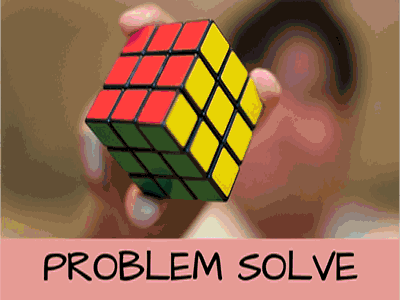
6th Grade |
Mrs. Hulstrom |
Typing.com
(Join Class through Google Classroom)
Tynker Online Support Video Help
Code HS
Karel the Dog class code: 1251
Welcome to 2021-2022 6th Graders!
First thing that students need to do:
Go to your Schoology and find our class!
I look forward to a fun, educational, and productive quarter! I thoroughly enjoy Computer Science and I hope you enjoy this class.
Thank you,
Jan Hulstrom
Our Units of Study for 6th Tech Ed:
- Introduction to computer programming
- Binary systems
- Algorithms
- Debugging
- Looping structures
- Conditionals
- Functions
- Variables
- Computer hardware
- Hardware exploration (PC)
- Computing Systems
- Input/Output
- Digital Citizenship
- Online Safety
- Cybersecurity Introduction
During 6th Grade Tech Ed, we will be Introduced to many of these CSTA (Computer Science Teachers Association) standards: |
2-AP-10 Use flowcharts and/or pseudocode to address complex problems as algorithms.
C:Algorithms & Programming S:Algorithms P4.4, P4.1
2-AP-11 Create clearly named variables that represent different data types and perform operations on their values.
C: Algorithms & Programming S: Variables P5.1, P5.2
2-AP-14 Create procedures with parameters to organize code and make it easier to reuse.
C: Algorithms & Programming S: Modularity P4.1, P4.3
2-AP-17 Systematically test and refine programs using a range of test cases.
C: Algorithms & Programming S: Program Development P6.1
2-AP-18 Distribute tasks and maintain a project timeline when collaboratively developing computational artifacts.
C: Algorithms & Programming S: Program Development P2.2
2-AP-19 Document programs in order to make them easier to follow, test, and debug.
C: Algorithms & Programming S: Program Development P7.2
2-CS-02 Design projects that combine hardware and software components to collect and exchange data.
C: Computing Systems S: Hardware & Software P5.1
2-CS-03 Systematically identify and fix problems with computing devices and their components.
C: Computing Systems S: Troubleshooting P6.2
2-DA-08 Collect data using computational tools and transform the data to make it more useful and reliable.
C: Data & Analysis S: Collection, Visualization & Transformation P6.3
Additional ISTE Standards? |
Empowered Learner
Students leverage technology to take an active role in choosing, achieving and demonstrating competency in their learning goals, informed by the learning sciences.
Digital Citizen
Students recognize the rights, responsibilities and opportunities of living, learning and working in an interconnected digital world, and they act and model in ways that are safe, legal and ethical.
Knowledge Constructor
Students critically curate a variety of resources using digital tools to construct knowledge, produce creative artifacts and make meaningful learning experiences for themselves and others.
Innovative Designer
Students use a variety of technologies within a design process to identify and solve problems by creating new, useful or imaginative solutions.
Computational Thinker
Students develop and employ strategies for understanding and solving problems in ways that leverage the power of technological methods to develop and test solutions.
Creative Communicator
Students communicate clearly and express themselves creatively for a variety of purposes using the platforms, tools, styles, formats and digital media appropriate to their goals.
Global Collaborator
Students use digital tools to broaden their perspectives and enrich their learning by collaborating with others and working effectively in teams locally and globally.